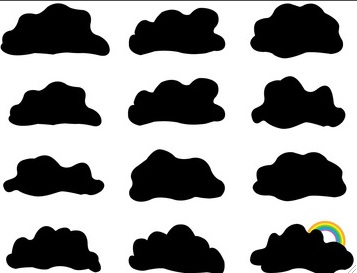 Image by Ben Weeks.
Image by Ben Weeks.
Here’s where I sound very, very bipolar. I wrote an article a few weeks ago on “10 Good Things About Depression” and now I’m supporting psychiatrist Ron Pies’s viewpoint that we should not perpetuate what he calls “The Myth of Depression’s Upside.”
Pies, who is Editor-in-Chief of Psychiatric Times and a professor of psychiatry at Tufts University School of Medicine, gives a much needed response to Jonah Lehrer’s essay “Depression’s Upside” in the Feb. 28, 2010 New York Times Magazine about all the wonderful tasks depression can do for you … foster creativity, sharpen analytical skills, improve problem-solving skills, yada yada yada all the way to the psych ward.
Now, as I said in my “10 Good Things” post, I verify that many of my strengths arrived in my black night, or with the arsenals that blew up my living room: I care less about what people think of me because I now know that there is a tenacious strength within me that doesn’t have to yield to or depend on daily opinions, I’m no longer afraid to die (if fact, some days it’s desired!), and I can better identify what’s real from what’s false … especially in relationships, and acknowledge a blessing before it’s gone.
However, this is a basically an exercise in squeezing the hell out of a couple of lemons to extract some juice. Had I been offered just plain, straight-up lemonade … or even a lemon with a peppermint stick, I would have gladly taken it and saved myself the effort. And, as such, I think it would be ludicrous for a person suffering from major depression or another severe mood disorder to forgo treatment in order to better access the creative genius hiding inside the limbic system. Hell no, take the drugs and get your butt in therapy. Because then you will be able to hold the paintbrush without tremors.
Here’s where I think articles like Lehrer’s (and you can include my 10 Good Things if you want) are most dangerous: they forget that, for some, depression means trying every single day to stay alive and to thwart all thoughts and energy going into ending their lives. In his Psychcentral post, “The Myth of Depression’s Upside,” Pies writes:
Lehrer is a thoughtful writer, but in this article, his conflation of terms like “depression,” “sadness,” “melancholy,” and “low mood” produces a kind of conceptual tossed salad. Some of the studies he cites, in which subjects are tested under transient, experimentally-induced states of low mood, have evidently befuddled Lehrer, who assumes that these brief, artificial states are somehow comparable to clinical depression.
Pies then challenges the assertion by Lehrer and others that since depression is so highly prevalent in our population, that “this must mean that the condition confers some kind of evolutionary advantage, or represents a useful ‘adaptation’.” Meaning, we are supposed to be depressed … it refines us as a human species, and so therefore, let’s not give it the bird.
Pies shakes his head no. Instead he suggests that depression remains “conserved” in the human genome as a spandrel–a kind of genetic hitchhiker that does nothing to improve the ride. It’s with us only because it was too cheap to pay for public transportation. Pies explains that you can have traits that are simply byproducts of other (presumably adaptive) traits. So, if I say that depression has made me more sensitive, altruistic, and compassionate, it’s not really the depression that did that. The traits–sensitivity, altruism, and compassion–are adaptive … we need them to evolve as social creatures. And the depression, cheap bastard that it is, has merely hitchhiked along with those other traits.
Make sense? Here’s Pies’s straightforward and wise conclusion:
We should not renounce or disown the part of us that produces depression — it is a piece of our messy, complex, and wondrous humanity. And, to be sure: ordinary sadness or grief may indeed be a good teacher. We should not rush to suppress or “medicate” what Thomas à Kempis called “the proper sorrows of the soul.” At the same time, we should be under no illusion that severe clinical depression is a “clarifying force” that helps us navigate life’s complex problems. That, in my view, is a well-intentioned but destructive myth.
* Click here to subscribe to Beyond Blue and click here to follow Therese on Twitter and click here to join Group Beyond Blue, a depression support group. Now stop clicking.

